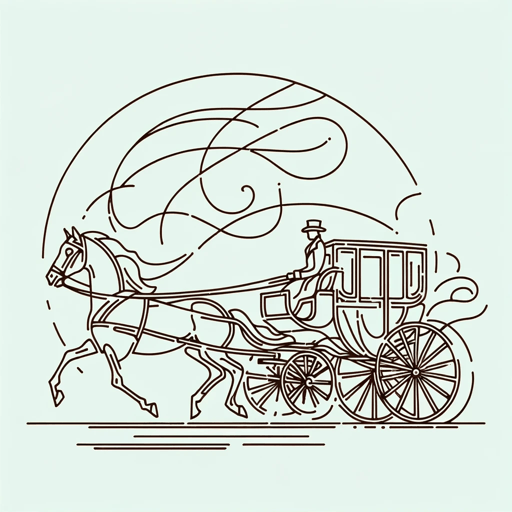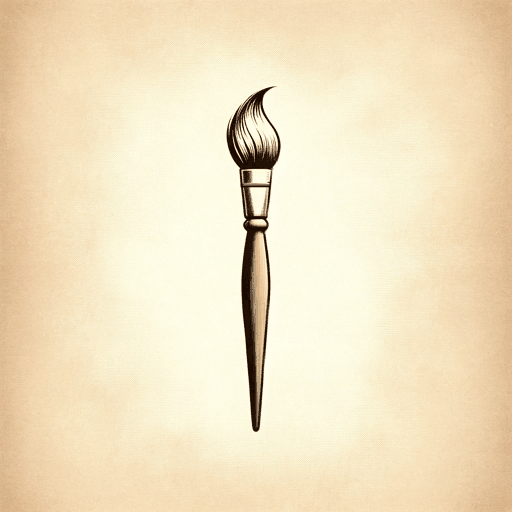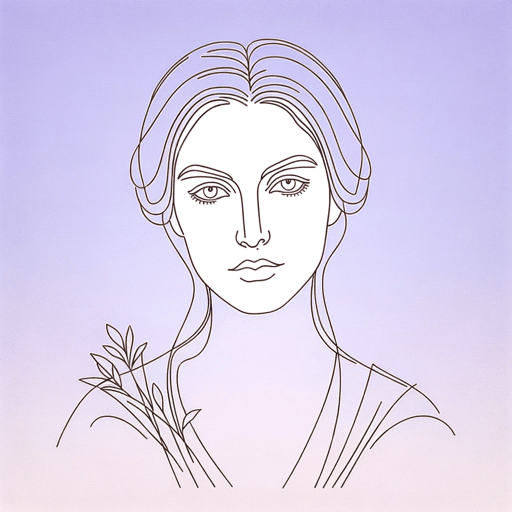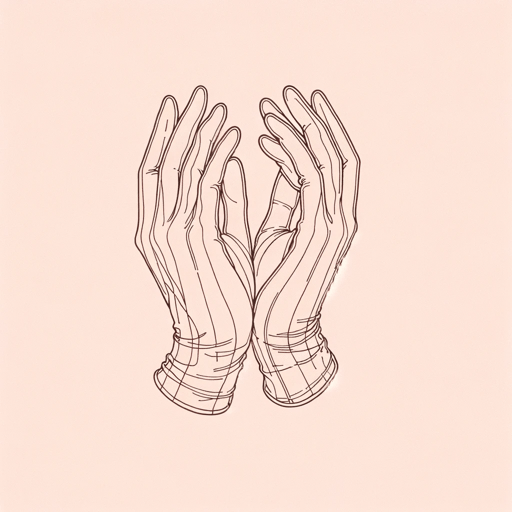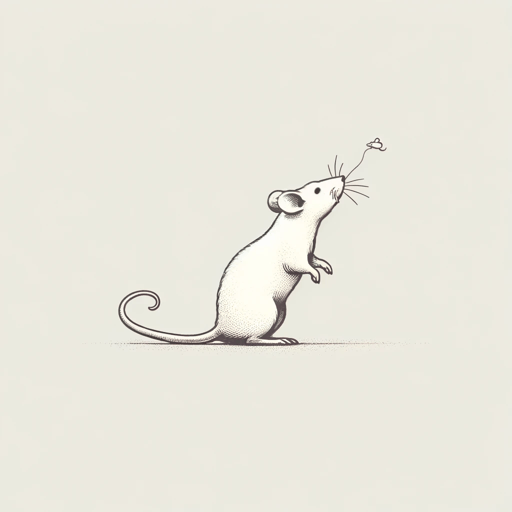20 pages • 40 minutes read
Robert BrowningThe Last Ride Together
Fiction | Poem | Adult | Published in 1855A modern alternative to SparkNotes and CliffsNotes, SuperSummary offers high-quality Study Guides with detailed chapter summaries and analysis of major themes, characters, and more.
Summary and Study Guide
Overview
“The Last Ride Together” is a poem by the Victorian poet Robert Browning (1812-1889), first published in his 1855 collection Men and Women. It is an example of the poetic genre for which Browning is most famous: the dramatic monologue. Such a poem consists of words uttered by a speaker who is different from the author and whose personality is gradually revealed through his/her own words. This genre appealed to Browning because it allowed him to avoid the highly personal and confessional nature of Romantic poetry, which prevailed in the early 19th century. He wrote the poem during the happiest time of his life, while he was married to fellow poet Elizabeth Barrett Browning. The poem expresses the thoughts and feelings of a man who is sharing one final experience with a woman he loves. At the endpoint of a romantic relationship, he reflects on its hopes, disillusionments, and insights. In love—as in life—our dreams are greater than our achievements, yet nothing else offers more intensity and joy, bringing us closer to heaven.
Poet Biography
Robert Browning was born in 1812 in a London suburb. He had limited formal schooling and preferred home education provided by private tutors and his father’s extensive library. Browning was an omnivorous reader and autodidact (someone who teaches himself valuable skills and knowledge with little outside help). At 21, he published his first book of poetry, in the style of the Romantic predecessors he admired, especially Percy Bysshe Shelley. However, he soon found such poems excessively self-revealing and self-conscious. Considering drama a more impersonal form of art, he spent several years writing plays, but none of them were very successful. Eventually, he realized that introducing dramatic elements into the short-poem format was the best fit for his skills and temperament. He thus discovered his ideal poetic form: the dramatic monologue.
His personal life changed profoundly when he met Elizabeth Barrett in 1845. Slightly older than him and in poor health, she was already a well-known poet. They fell passionately in love and eloped to Italy, where they lived happily until her death in 1861. These were peaceful and productive years for Browning, who published his most widely admired book, Men and Women (1855), during this period. It was followed by another acclaimed collection of dramatic monologues, Dramatis Personae in 1864.
Upon his wife’s death, Browning returned to London and spent the rest of his life there, becoming much more of a public figure and enjoying the social life of the metropolis. His most remarkable late achievement was the long poem (or a novel in verse) The Ring and the Book (1868). While his poetic experiments had few admirers early on, by the time of his death in 1889, Browning had acquired a lasting reputation and large international following. He was buried in Westminster Abbey, an honor reserved for the most illustrious figures in British society.
Poem Text
I SAID—Then, dearest, since ‘tis so,
Since now at length my fate I know,
Since nothing all my love avails,
Since all, my life seem’d meant for, fails,
Since this was written and needs must be—
My whole heart rises up to bless
Your name in pride and thankfulness!
Take back the hope you gave, —I claim
Only a memory of the same,
—And this beside, if you will not blame;
Your leave for one more last ride with me.
My mistress bent that brow of hers,
Those deep dark eyes where pride demurs
When pity would be softening through,
Fix’d me a breathing-while or two
With life or death in the balance: right!
The blood replenish’d me again;
My last thought was at least not vain:
I and my mistress, side by side
Shall be together, breathe and ride,
So, one day more am I deified.
Who knows but the world may end to-night?
Hush! if you saw some western cloud
All billowy-bosom’d, over-bow’d
By many benedictions—sun’s
And moon’s and evening-star’s at once—
And so, you, looking and loving best,
Conscious grew, your passion drew
Cloud, sunset, moonrise, star-shine too,
Down on you, near and yet more near,
Till flesh must fade for heaven was here!—
Thus leant she and linger’d—joy and fear!
Thus lay she a moment on my breast.
Then we began to ride. My soul
Smooth’d itself out, a long-cramp’d scroll
Freshening and fluttering in the wind.
Past hopes already lay behind.
What need to strive with a life awry?
Had I said that, had I done this,
So might I gain, so might I miss.
Might she have loved me? just as well
She might have hated, who can tell!
Where had I been now if the worst befell?
And here we are riding, she and I.
Fail I alone, in words and deeds?
Why, all men strive and who succeeds?
We rode; it seem’d my spirit flew,
Saw other regions, cities new,
As the world rush’d by on either side.
I thought,—All labour, yet no less
Bear up beneath their unsuccess.
Look at the end of work, contrast
The petty done, the undone vast,
This present of theirs with the hopeful past!
I hoped she would love me; here we ride.
What hand and brain went ever pair’d?
What heart alike conceived and dared?
What act proved all its thought had been?
What will but felt the fleshly screen?
We ride and I see her bosom heave.
There’s many a crown for who can reach.
Ten lines, a statesman’s life in each!
The flag stuck on a heap of bones,
A soldier’s doing! what atones?
They scratch his name on the Abbey-stones.
My riding is better, by their leave.
What does it all mean, poet? Well,
Your brains beat into rhythm, you tell
What we felt only; you express’d
You hold things beautiful the best,
And pace them in rhyme so, side by side.
‘Tis something, nay ‘tis much: but then,
Have you yourself what’s best for men?
Are you—poor, sick, old ere your time—
Nearer one whit your own sublime
Than we who never have turn’d a rhyme?
Sing, riding’s a joy! For me, I ride.
And you, great sculptor—so, you gave
A score of years to Art, her slave,
And that’s your Venus, whence we turn
To yonder girl that fords the burn!
You acquiesce, and shall I repine?
What, man of music, you grown gray
With notes and nothing else to say,
Is this your sole praise from a friend?—
‘Greatly his opera’s strains intend,
But in music we know how fashions end!’
I gave my youth: but we ride, in fine.
Who knows what’s fit for us? Had fate
Proposed bliss here should sublimate
My being—had I sign’d the bond—
Still one must lead some life beyond,
Have a bliss to die with, dim-descried.
This foot once planted on the goal,
This glory-garland round my soul,
Could I descry such? Try and test!
I sink back shuddering from the quest.
Earth being so good, would heaven seem best?
Now, heaven and she are beyond this ride.
And yet—she has not spoke so long!
What if heaven be that, fair and strong
At life’s best, with our eyes upturn’d
Whither life’s flower is first discern’d,
We, fix’d so, ever should so abide?
What if we still ride on, we two
With life for ever old yet new,
Changed not in kind but in degree,
The instant made eternity,—
And heaven just prove that I and she
Ride, ride together, for ever ride?
Browning, Robert. “The Last Ride Together.” 1855. Poetry Archive.
Summary
The poem conveys the speaker’s feelings and thoughts triggered by a romantic breakup, with only sporadic references to specific actions. It consists of four parts: the speaker’s request for the last ride (Stanzas 1-3), the beginning of the ride (Stanzas 4-6), reflections on art (Stanzas 7-8), and reflections on heaven (Stanzas 9-10).
The speaker finds out that his love affair is over. He accepts the fact, grateful for past happiness, but requests one final ride with his mistress. When she agrees, he is delighted to share one more experience with her, even if it might be his last. Her presence inspires powerful emotions in him, almost a heavenly joy.
As they begin the ride, he relaxes and forgets about past hopes. Had they stayed together, he muses, she might have loved him forever or hated him eventually. Now, at least, he has this last ride. He reflects that all people achieve less than they aspired, and there is always a gap between wish and fulfilment. Those who achieve greatness receive some recognition, but he prefers this ride to all else.
The speaker points out that artists dedicate their whole lives to art—whether poetry, sculpture, or music—yet they do not get any closer to what is sublime in life than he has in this moment of riding with a woman he loves. For example, the poet may write beautiful lines about the joy of riding, but the speaker actually feels that joy.
Finally, he wonders if the earthly bliss he is experiencing is enough or whether he should strive to glimpse some otherworldly bliss. His faith was once strong, but now he cannot believe that there is happiness more profound than what he feels in this very moment. All that matters now is this ride. He concludes that perhaps this moment could last forever, and that heaven could prove to be nothing else but their never-ending ride.
Related Titles
By Robert Browning
